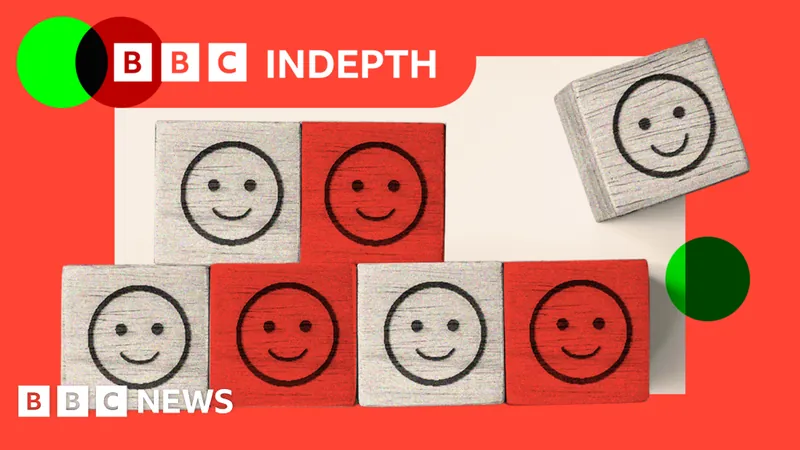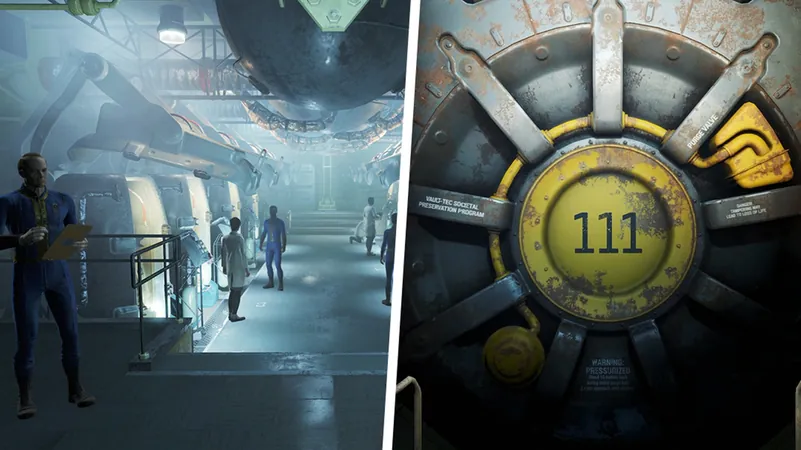
The Retro Hobby That Can Skyrocket Your Happiness: Speedcubing
2024-12-26
Author: Wai
The Retro Hobby That Can Skyrocket Your Happiness: Speedcubing
In a heartwarming convergence of passion and nostalgia, hundreds of enthusiasts recently filled an arena in Coventry for the UK Rubik's Championship, showcasing a beloved pastime that's reigniting joy across generations. Fans of all ages, including attendees from as far away as Mongolia and Canada, gathered not just to compete, but to celebrate the art of speedcubing—an inspiring blend of cognitive skill, competition, and community.
During the three-day event, up to 500 participants showcased their abilities in numerous events, including blindfolded and one-handed solving. The standout moment came when teenager James Alonso emerged victorious, solving the classic 3x3 cube with an astonishing average of just 6.3 seconds, a feat that captivates audiences and challenges the best around the globe.
Reviving A Classic: The Rise of Speedcubing
First conceptualized in 1974 by Ernő Rubik, a Hungarian architect, the Rubik's Cube has seen a renaissance in popularity, with global sales of cube-related products hitting a staggering $86.6 million in 2023—a 13.5% increase from the previous year. The world of puzzle cubes has exploded, with various brands introducing cubes made of wood, featuring electronic parts, and showcasing vibrant designs, capturing both nostalgic players and new enthusiasts alike.
But it's not just about the thrill of competition and skill—scientists are now highlighting how speedcubing can contribute to emotional well-being. According to Polina Beloborodova, a research associate at the University of Wisconsin-Madison, the combination of cognitive challenge and social connection acts as a significant mood booster. "Speedcubing satisfies the basic psychological need for competence," she notes, which fosters feelings of mastery and achievement through complex problem-solving, memory use, and spatial reasoning.
The Science Behind Happiness in Speedcubing
Experts like Dr. Julia Christensen from the Max Planck Institute emphasize the aesthetic joy that comes from solving these puzzles: "Experiencing awe and beauty can lead to profound happiness," she explains. Many competitive cubers describe achieving a state referred to as "flow," a unique mental place where the actions become instinctual and one feels completely engrossed in the task. This state of mind, often compared to meditation, offers a pathway to mindfulness and relaxation that helps players disconnect from life's chaos.
Dr. Adil Khan from King’s College London points out that the social aspects of speedcubing enhance the experience even further. “Combining puzzle-solving with social interaction delivers a deeply satisfying experience,” he explains. Numerous participants, like Jan Hammer, find joy in sharing this hobby with loved ones, highlighting the strong community atmosphere that characterizes the speedcubing world.
Cognitive Benefits: What We Know and Don't Know
While speedcubing does engage various cognitive skills, studies suggest that this engagement does not result in long-term cognitive improvements. Dr. Toby Wise explains how the brain sorts through potential configurations of the cube, but warns that solving puzzles won’t inherently expand our mental capabilities or protect against cognitive decline. Dr. Khan concurs, asserting that while solving a Rubik's Cube can be an entertaining task, it may not fortify cerebral strength over time.
On the other hand, the act of solving cubes provides an escape from the frenetic nature of modern life. Completing the challenge of arranging a chaotic cube back into order resonates deeply with human instincts for organization. Participants like Hammer and author Ian Scheffler emphasize that the simplicity and clarity of the cube's challenge foster increased focus and a structured mindset, beneficial even in professional settings.
In summary, speedcubing is much more than a puzzle; it encapsulates a heartfelt journey that reunites generations, promotes social connections, and may even spark a sense of fulfillment and well-being. The retro hobby offers a unique portal into happiness, proving that sometimes the simplest of pastimes can yield the greatest joy.


 Brasil (PT)
Brasil (PT)
 Canada (EN)
Canada (EN)
 Chile (ES)
Chile (ES)
 España (ES)
España (ES)
 France (FR)
France (FR)
 Hong Kong (EN)
Hong Kong (EN)
 Italia (IT)
Italia (IT)
 日本 (JA)
日本 (JA)
 Magyarország (HU)
Magyarország (HU)
 Norge (NO)
Norge (NO)
 Polska (PL)
Polska (PL)
 Schweiz (DE)
Schweiz (DE)
 Singapore (EN)
Singapore (EN)
 Sverige (SV)
Sverige (SV)
 Suomi (FI)
Suomi (FI)
 Türkiye (TR)
Türkiye (TR)